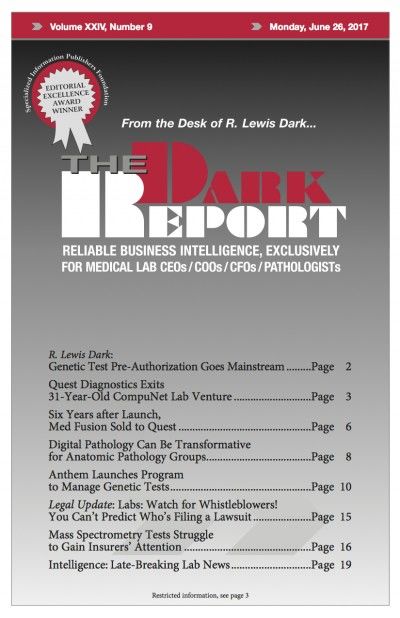CEO SUMMARY: News that Quest Diagnostics had exited the long-running CompuNet Clinical Laboratory joint venture in Dayton, Ohio, caught many observers by surprise. The only clues as to possible problems and the motivation of Premier Health, the 51% owner, to buy out Quest’s ownership share are contained in an announcement the health system issued. The …
Quest Diagnostics Exits 31-Year-Old Lab Venture Read More »
To access this post, you must purchase The Dark Report.


